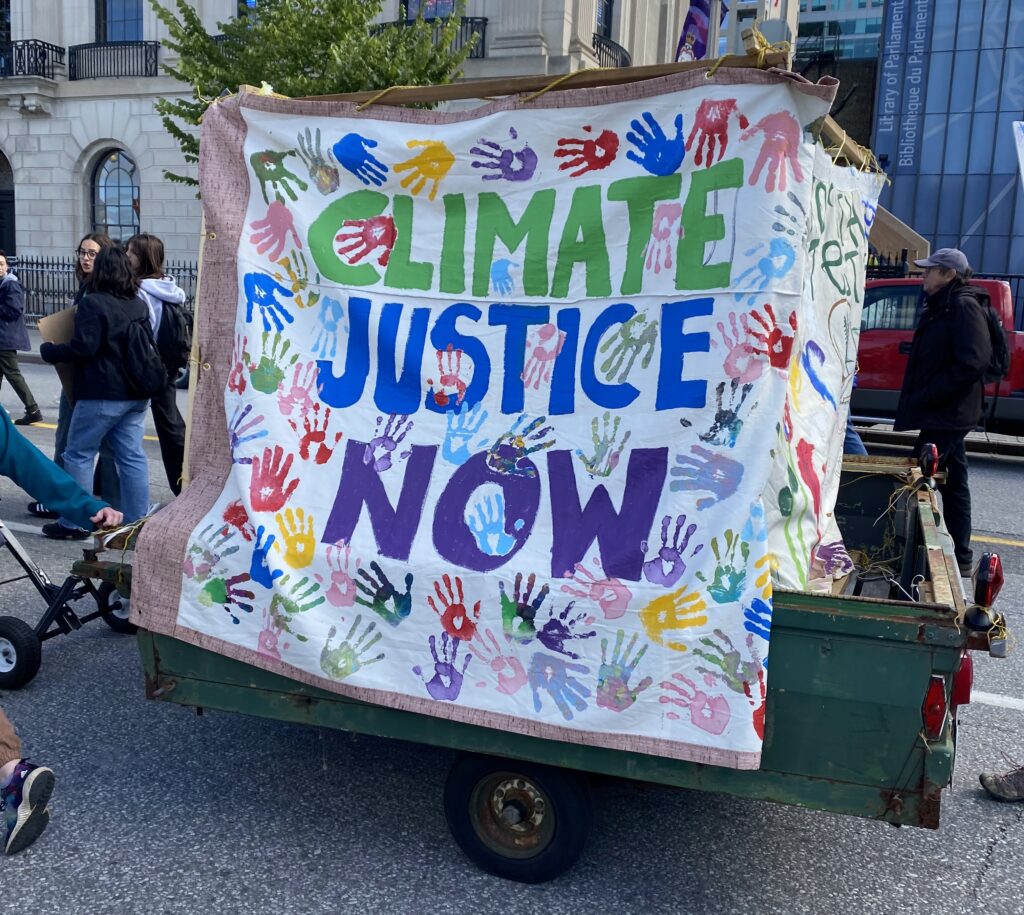Finding hope in a tough year for climate action

“Betrayal,” “outrageously inadequate,” “embarrassing,” “shameful,” “deeply disappointing” – these are all words used to describe this year’s UN Climate Conference – COP29 in Baku, Azerbaijan.
COP29 was slated to be the finance COP, where we expected to see progress on securing critical climate finance for countries in the Global South most impacted by climate change. The New Collective Quantified Goal (NCQG) – the new global goal for climate finance, which was signed by Canada and almost 200 countries, saw an increase in promised public funding from US$100 billion to US$300 billion each year by 2035. However, a report released during COP29 from the Independent High-Level Expert Group on Climate Finance estimates that a global investment of $1 trillion per year by 2030 and about $1.3 trillion per year by 2035 is needed for climate action.
In reaction to the amount that was put on the table at COP29, Tasneem Essop, Executive Director of Climate Action Network – International, called it “embarrassingly low” and Climate Action Canada called it a “band aid on a bullet wound.” Negotiators from small island and least-developed nations even staged a walkout at COP29 to express their frustration and profound disappointment. These countries are the least responsible for causing climate change and the most vulnerable to its impacts.
In addition to a deadlock on climate finance, COP29 failed to advance the Just Transition Work Programme, established in 2022 at COP27. The Programme aims to promote pathways to ensure that the Paris Agreement goals are achieved justly and equitably. In addition, there was no carry through on the Global Stocktake from COP28, which calls on nations to transition away from fossil fuels. Language around the phase out of fossil fuels was also absent in the outcomes from the COP16 Biodiversity Conference in October.

Back home, the federal government finally released its 2035 greenhouse gas emissions reduction target, increasing the current target of 40-45 percent to 45–50 percent below 2005 levels. Recent analysis shows that Canada’s fair share of the global climate effort for 2035 is an 80 percent emissions reduction target. In comparison, the UK government announced at COP29 that it would reduce its emissions by 81 percent below 1990 levels by 2035. Comparing Canada’s revised target to the 1990 base , 45-50 percent below 2005 levels equals 23.6-30.7 percent.
We know it can be hard to find hope in the face of these disappointments. KAIROS finds hope in its global partners and the movements that take actions every day to help fulfil the theme of COP29: investing in a livable planet for all.
In 2025, KAIROS will continue to urge the Canadian government to scale up its climate finance commitments and ensure that climate finance is delivered through grants that cannot further increase the debt burden of countries in the Global South. We will also continue to call for an equitable and just phase out of fossil fuels globally. Join us in taking faithful action for climate justice!
By Beth Lorimer, KAIROS’ Ecological Justice Coordinator.
